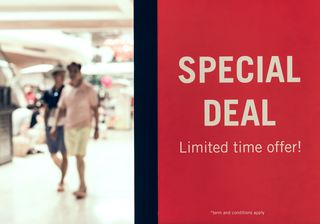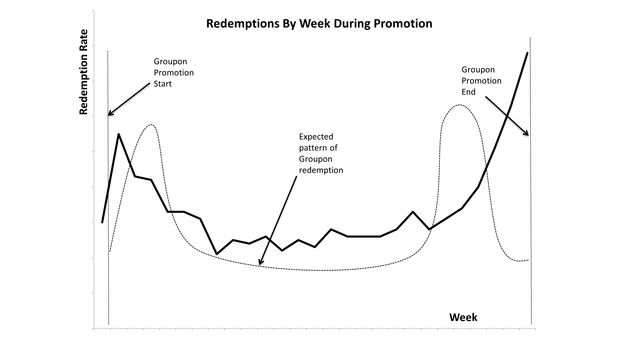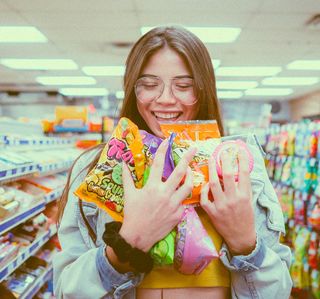Media
Why Limited-Time Offers Entice Shoppers to Buy
They generate social media buzz, trigger regret, and increase sense of urgency.
Posted June 3, 2019 Reviewed by Devon Frye

As I have written in earlier blog posts, price is a powerful tool used by marketers to get customers to push the “buy” button. Few marketing methods are as tried and tested as a price promotion, which is an incentive with an expiration date. Most of us have availed of limited-time offers like discount coupons, sales, daily deals, flash sales, etc.
In this post, I want to consider how the “limited-time” aspect of price promotions works. This is the key to designing a price promotion because while other variables, such as what is on sale and the level of discount, dictate an offer’s appeal, the expiration date influences when the customer buys. A carefully chosen time restriction, in and of itself, acts as an effective purchase trigger.
Back in 2011, when daily deal promotion sites like Groupon and LivingSocial were booming, I conducted a descriptive analysis of a Groupon promotion for a startup called Gourmet Prep Meals. The company had launched just a couple of months earlier and sold premium ready-to-cook meal kits throughout the Houston metro area when it ran a Groupon promotion to gain exposure to new customers. The Groupon offered $25 worth of products for $12. The promotion ran at the end of September 2010, and the company sold over 600 Groupon vouchers. The vouchers were valid for a period of six months from October 1, 2010, to March 31, 2011. Among other things, we examined the rate of Groupon redemptions over the course of the promotion in the study. The figure shows the pattern of voucher redemption.

Coupon redemptions have bimodal distributions
Academic research on limited-time promotions has found that the redemption pattern of coupons typically follows a bimodal distribution. As the figure shows, this is also what we found. In the first few weeks, a disproportionately high number of Groupon purchasers redeemed the voucher because it was top-of-the-mind (after all, they had just purchased it). In a limited-time promotion, early redemption is driven by the fact that early redeemers are likely to be more enthusiastic or curious about the seller’s products and use the promotion as a way to try new products.
Once this customer group had redeemed their Groupons, the redemption rate dwindled. It picked up again towards the end in the last week or two as many stragglers rushed to use their Groupons before they expired. The reason for this is that the regret from missing out on the deal, or what psychologists call “anticipatory regret,” becomes salient for customers in the last stages of the promotion. Setting an expiration date is important to trigger anticipatory regret which in turn leads to purchase. Far more people redeemed their Groupon right before the promotion ended than when it started, indicating that anticipatory regret was a stronger force than curiosity or enthusiasm.
Long duration or short duration?
Sellers also grapple with the question of the optimal duration of a limited-time promotion. On the short end, a promotion like a flash sale may last only a few hours or a few days at most. On the long end, like Gourmet Meal Prep’s Groupon, a customer may be able to avail of a promotion for several months. The Groupon finding about bimodal distribution of redemption supports shorter-duration promotions. If many customers wait until the very end to redeem the promotion, a shorter-duration promotion will get them to redeem earlier.
In one study of coupons distributed through free-standing inserts in newspapers, the researchers found that the promotion’s optimal duration depends on the seller’s brand strength and market share. Their recommendation was that if sellers want to maximize their profit, those with prominent brands and high market shares should use promotions of shorter durations, whereas smaller, niche sellers should run limited-time promotions that have longer durations. This is because more customers are pulled towards the high-profile seller when its promotion is running, then turn to the smaller seller’s offer.

Research has also shown that short-duration promotions act like double-edged swords where consumers consider both economic and emotional repercussions of the limited time available for redemption. On the one hand, short durations favor customers’ pressing the purchase button by increasing the individual’s anticipatory regret at missing out and creating a sense of urgency to buy. On the other hand, consumers are put out by the burden of inconvenience placed upon them by the seller, which lowers their evaluation of the offer.
To deal with the potential downside, psychologists suggest providing an explanation to customers for why the promotion has a short duration. For instance, saying something like “This flash sale has unbelievable savings, that’s why it’s only going to run for the next two hours” is a credible explanation for customers who receive the offer. Such an explanation delivers the dual benefits of increasing the promotion’s attractiveness (unbelievable savings) and making customers who are offered the deal feel like insiders.
Social media buzz
Nowadays, sellers also use short-lived offers to generate buzz in social media and increase consumers’ engagement with their brand. In Spring 2019, home-improvement chain Lowe’s ran an elaborate one-day promotion that required customers to go to a Lowe’s store, find a keyword on promotional banners it had specially set up there, then text or go online to request a coupon. Customers received a random coupon valued between $5 and $500 off any purchase. The coupon could be redeemed in a Lowe’s store only on that day and did not have any other restrictions. The promotion energized customers and spread through social media like wildfire. Many customers forwarded the keyword to friends, who tried their luck at winning a high-value Lowe’s coupon.
Buzzworthy promotions typically run for a very short time, from a few seconds to a day at most, and tend to run out long before their scheduled end. They provide very generous incentives to the lucky few customers who manage to get them. While customers who miss out often express anger and frustration, the net benefit of these short-lived offers is that it encourages store visits from customers, increases social media mentions and engagement, and reaches large audiences.




